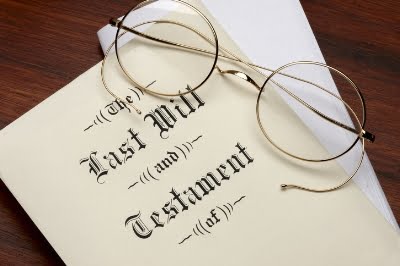
The New York Times just published a question and answer in its “Social Q’s” section regarding the legal validity of an unsigned Will. Another recent article referenced a Will written in a draft text message. Naturally the text also remained unsigned. The text message was approved as a valid will by an Australian court. In the U.S., probate courts are not usually so flexible when it comes to what constitutes a valid will.
Without a signature, is a Will still valid in the eyes of the Probate Court? Let’s look specifically at California Probate Law.
The easy answer is No. Without a signature, a Will is not valid. The more complicated answer is – if you have a good lawyer – the unsigned Will might give you some leverage.
And the answer for the rest of us is – sign your estate documents and do it with a reputable estate planning attorney. But we’ve all heard that one before. So let’s move on to the juicy stuff.
In the Times’ article, Marie writes that her brother and his wife loved their Uncle Eddy. In fact, the brother & wife were apparently the only ones who loved Uncle Eddy. Eddy had three siblings, none of who spoke to him. Maria’s brother and wife, on the other hand, spent a significant time with Uncle Eddy. Or at least as much as they could stand. Then Uncle Eddy died.
Now, before Eddy died he apparently wrote a Will leaving everything to Maria’s brother and his wife. But he didn’t sign it. According to intestate succession (the law governing asset distribution when there is no valid Will or Trust), Eddy’s three siblings are entitled to his estate. Maria’s brother and wife want to know what can be done. After all, the will clearly shows Uncle Eddy’s intent to give everything to his nephew, right? And everyone knew Eddy did not like those pesky siblings. He certainly wouldn’t want them to get his estate.
The Times reporter tells Maria that her brother and his wife are [ ] out of luck. The law is the law, right? And the will wasn’t signed, so it’s not valid. Simple as pie.
I can’t speak to New York probate law, but in California it would certainly be worth having an experienced Probate Litigation attorney take a look at. If the will was written in the handwriting of Uncle Eddy (a holographic will), and the brother and his wife could show some kind of proof that Uncle Eddy intended to sign it and had just made a mistake – they might just have a chance. In the landmark case of 2015, Estate of Duke, California courts ruled that:
an unambiguous will may be reformed if clear and convincing evidence establishes that the will contains a mistake in the expression of the testator’s intent at the time the will was drafted and also establishes the testator’s actual specific intent at the time the will was drafted.
Estate of Duke effectively established that California probate courts can use extrinsic evidence (evidence contained outside of the actual document) to determine the intent of the testator.
Testator = person that died leaving a will or trust in place
The bottom line is don’t ask the New York Times if you have a legal question- ask an attorney who specializes in the relevant field of law. When it comes to questions around the validity of a will or trust, ask a Trust and Probate Litigation Lawyer.
Our office specializes in Trust and Probate Litigation in Contra Costa County and Alameda County. Call 925-322-1795 for your Consultation.

hey hello ! such a beautiful post and It’s very vital components to use are in daily life. we have aware because of you are provide such information. thanks to all and keep sharing
Regard